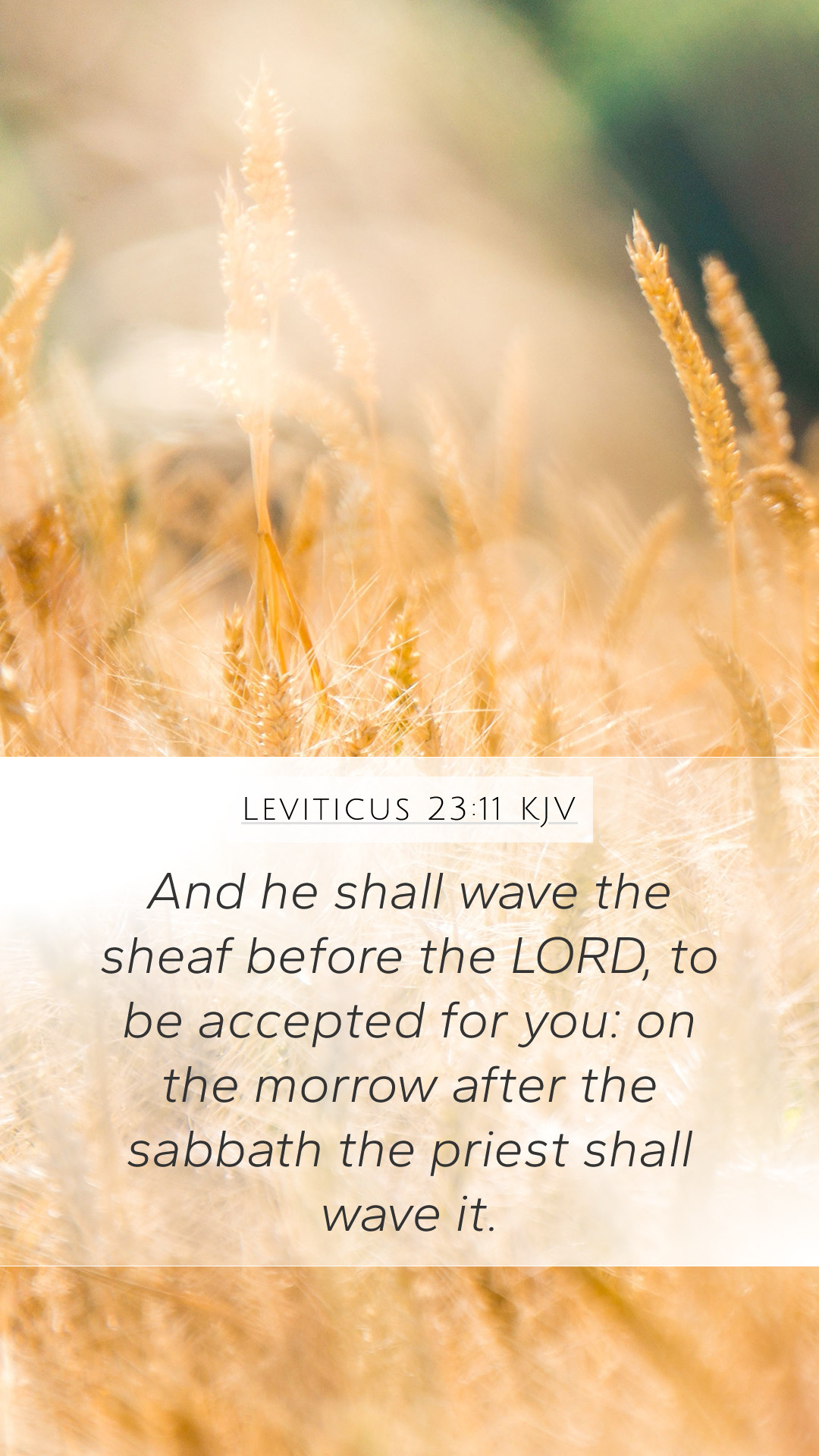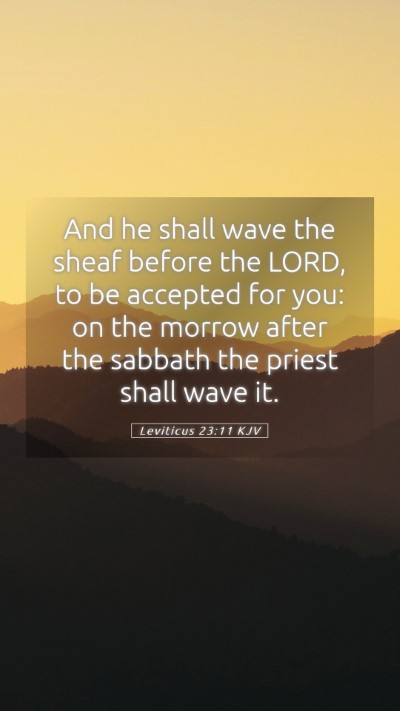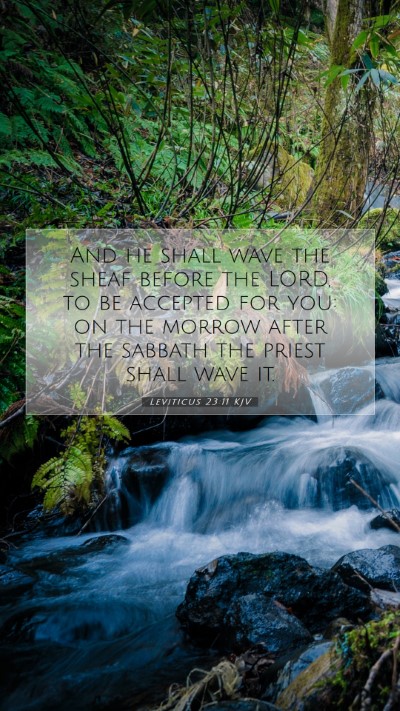Understanding Leviticus 23:11
Leviticus 23:11 states: "And he shall wave the sheaf before the LORD, to be accepted for you: on the morrow after the sabbath the priest shall wave it."
This verse is a part of the instructions related to the Feast of Firstfruits, which occurred during the Passover season. It signifies an essential practice within the Jewish tradition, serving both a ceremonial and agricultural purpose.
Meaning and Interpretation
The act of waving the sheaf signifies the acknowledgment of God's provision and the recognition of His sovereignty over the harvest. This was not just a ritual, but an act of faith and gratitude towards God, marking the beginning of the barley harvest.
Insights from Public Domain Commentaries
Matthew Henry's Commentary
Matthew Henry emphasizes the significance of this sheaf offering as a representation of the resurrection of Christ. He relates the wave offering to the gratitude that believers should express for God's continual blessings and provision. By presenting the firstfruits, the Israelites acknowledged God's ownership over all their yield, aligning with the principle of dedicating the first and best to Him.
Albert Barnes' Notes
Albert Barnes provides an explanation that links the wave sheaf to the larger context of Jewish agricultural practices and religious observances. He notes that this act served as a symbol of thanksgiving for the harvest yet to come. The timing of this offering, occurring the day after the Sabbath, signifies the resurrection of Jesus Christ, which follows the Sabbath rest, thus deepening its theological implications for Christians today.
Adam Clarke's Commentary
Adam Clarke interprets the waving of the sheaf as a vital ritual intended to dedicate the harvest to God. He mentions that this offering was made on the morrow after the Sabbath, pointing out the connection between this event and the timeline of Christ's resurrection. Clarke also elaborates on the joy and expectation of the harvest as a reflection of the spiritual harvest to come, linking it with themes of hope and renewal in a believer's life.
Theological Reflections
When examining Leviticus 23:11, it is crucial to understand its role not only in the religious calendar of the Israelites but also its implications for New Testament theology. The wave sheaf can be seen as a foreshadowing of Christ's resurrection, as He is the firstfruits of those who have fallen asleep (1 Corinthians 15:20). This connection enriches our Bible verse understanding by integrating Old Testament practices with New Testament fulfillment.
Application of Leviticus 23:11
The practice of offering the firstfruits is a principle that can be applied in modern life through the concept of giving God our best. Whether it's in our time, finances, or talents, the act of dedicating the first to God enhances our spiritual growth and reinforces our dependence on Him.
Cross References
- 1 Corinthians 15:20 - "But now is Christ risen from the dead, and become the firstfruits of them that slept."
- Exodus 23:19 - "The first of the firstfruits of thy land thou shalt bring into the house of the LORD thy God."
- Deuteronomy 26:2 - "That thou shalt take of the first of all the fruit of the earth, which thou shalt bring of thy land that the LORD thy God giveth thee..."
- John 12:24 - "Verily, verily, I say unto you, Except a corn of wheat fall into the ground and die, it abideth alone: but if it die, it bringeth forth much fruit."
- James 1:18 - "Of his own will begat he us with the word of truth, that we should be a kind of firstfruits of his creatures."
Conclusion
The significance of Leviticus 23:11 transcends its historical and cultural context, offering profound Bible study insights applicable to modern believers. Understanding this verse enhances our Bible verse explanations and deepens our Scripture analysis. As we study this verse and others alongside it, we begin to grasp the continuity and richness of God's plan as revealed throughout the Scriptures.
In summary, Leviticus 23:11 is a powerful reminder of the importance of recognizing God's provision, dedicating our offerings, and understanding the deep connections between the Old and New Testament revelations. Let us continue to seek clarity and wisdom through the study of God's Word, engaging with these Bible study topics and Bible study resources for deeper spiritual enrichment.


